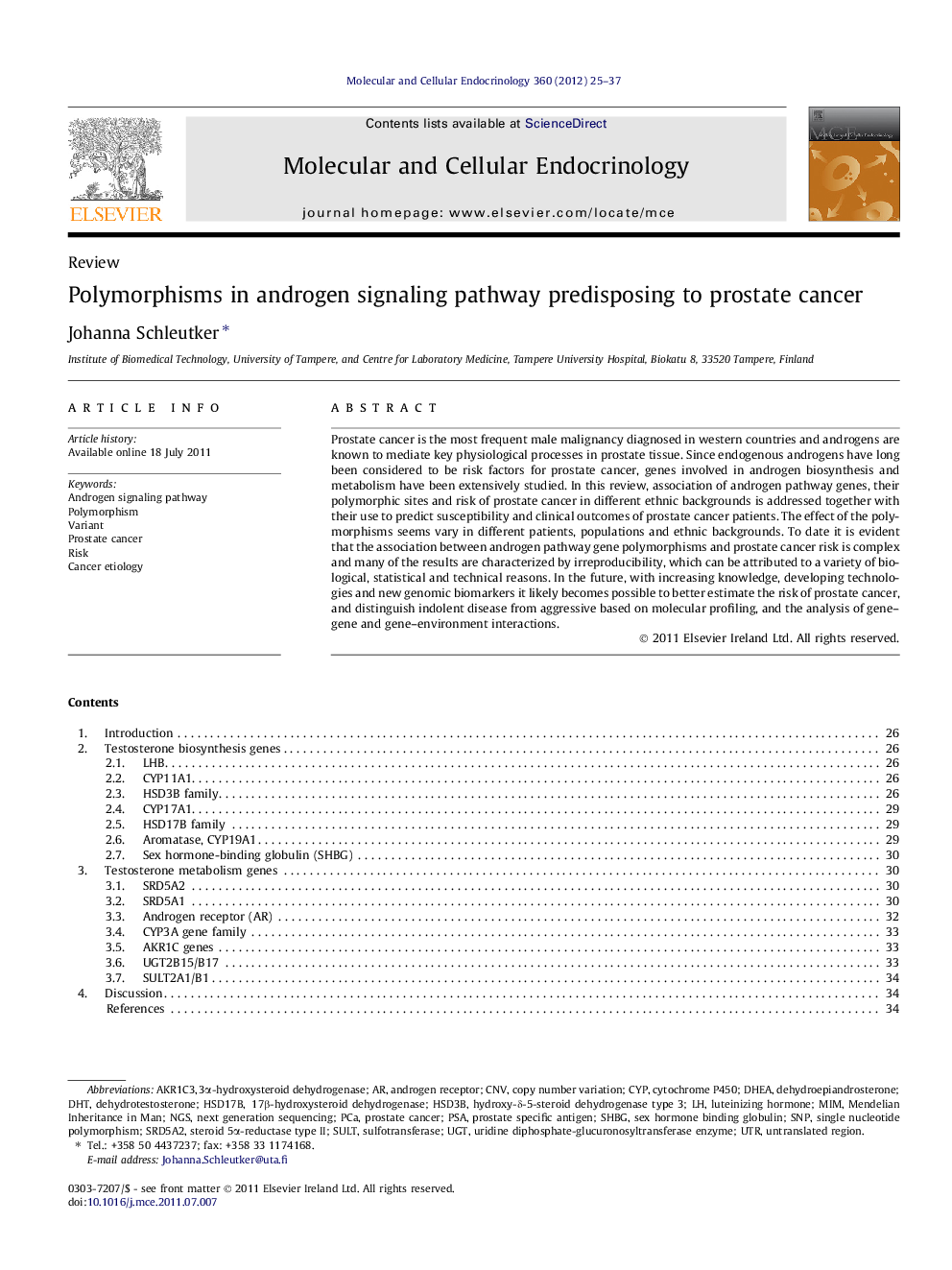| Article ID | Journal | Published Year | Pages | File Type |
|---|---|---|---|---|
| 8477661 | Molecular and Cellular Endocrinology | 2012 | 13 Pages |
Abstract
⺠Endogenous androgens have long been considered to be risk factors for prostate cancer. ⺠Increasing data suggest that PCa develops through a variety of interconnected genes, some of which belong to the androgen pathway. ⺠New genomic biomarkers will likely make it possible to better estimate the risk of PCa, and distinguish indolent disease from aggressive. ⺠This data may become important for targeted screening and chemoprevention programs.
Keywords
UGTDHEAHsd3bAKR1C3SULT17β-Hydroxysteroid dehydrogenaseSHBGSRD5A2dehydroepiandrosteroneNGSCyPPSADHTCNV3α-hydroxysteroid dehydrogenasePCAProstate specific antigencopy number variationNext generation sequencingRiskProstate cancersulfotransferaseCytochrome P450Cancer etiologyMIMUTR یا untranslated regions untranslated regionMendelian Inheritance in Manluteinizing hormonesex hormone binding globulinVariantPolymorphismSingle nucleotide polymorphismSNPAndrogen Receptor
Related Topics
Life Sciences
Biochemistry, Genetics and Molecular Biology
Cell Biology
Authors
Johanna Schleutker,
